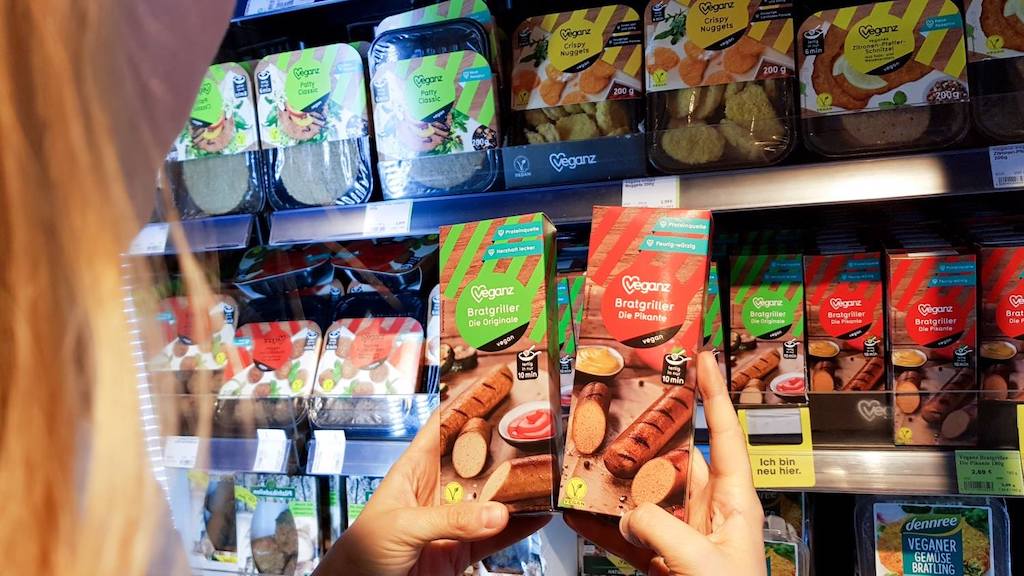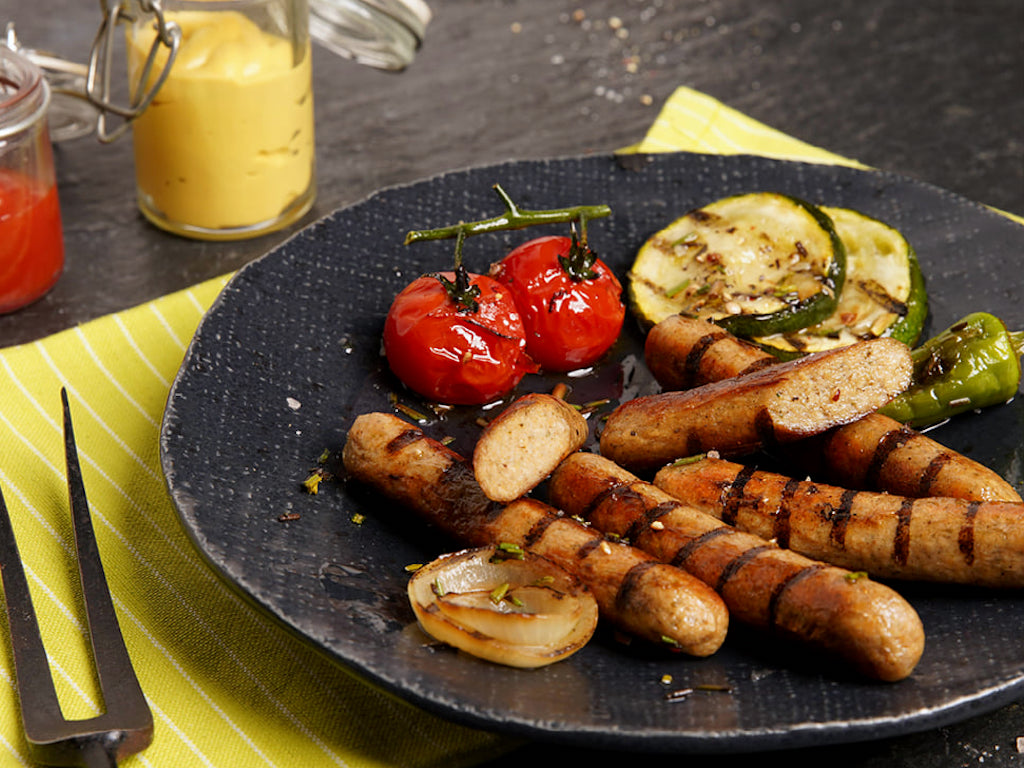3 Mins Read
Germany decreased its animal meat production, but vegan meat manufacturing grew, new data shows. Over 2020, the total value of meat production in the country fell by 4%, while its plant-based counterparts saw its value grow double-digits, fuelled by mass consumer demand for sustainable and healthier alternatives.
Animal meat manufacturing in Germany took a 4% year-on-year dive in 2020, according to new data released by Destatis, the country’s Federal Statistics Office. The value of German meat products totalled €38.6 billion (US$46.8 billion), down from the decade-high recorded in 2019 when the segment reached €40.1 billion (US$48.8 billion).
Meanwhile, plant-based meat production in Germany grew significantly to top €374.9 million (US$456.7 million) for the first time in 2020, marking a 39% increase from the year before. Data showed that the manufacturing of vegan meat alternatives rose from under 60,400 tons in 2019 to 83,700 tons last year.

It marks the first two-year data comparison of the growth of plant-based meat alternatives in Germany, given that Destatis only began collecting statistics on the category in 2019.
Analysts say that the trend is down to the overall decline in meat consumption, as public awareness over the safety and vulnerabilities of the animal supply chain spiked during the coronavirus pandemic.
In July last year, Germany’s largest market research firm GfK reported that almost a third of households were shifting away from meat consumption as a result of virus outbreaks in slaughterhouses, including in some of the country’s largest processing plants in Birkenfeld and Toennies, marking a big turnaround for Europe’s biggest pork producer famous for its sausage and schnitzel-loving food tradition.
Instead, consumers in Germany are choosing plant-based alternatives more than ever before, with retail sales within the vegan meat segment growing by an impressive 226% over the past two years to top €181 million (approx. US$218 million) in market value, shown in a recent E.U. Smart Protein study.

The same study, which examined 11 European countries, found that the German plant-based market was the fastest-growing of all, building on pandemic data that showed that for the first time, those who identify as full-time meat-eaters are now a minority in the country.
Instead, a larger portion of the population now identify as part-time vegans, flexitarians, vegetarians or plant-based – all diets that are actively limiting meat and dairy intake.
In response to soaring demand, retailers in Germany are now ramping up their share of vegan offerings, the latest being major chain Lidl, expanding its 100% plant-based range to more than 450 products in total and making the entire line-up carbon neutral through offsetting programs.
Fellow German supermarket chain Penny has launched an initiative to show the “true environmental cost” of food to consumers, marking the prices of carbon-intensive meat and dairy products higher than sustainable plant-based items.
Lead image courtesy of LikeMeat.




